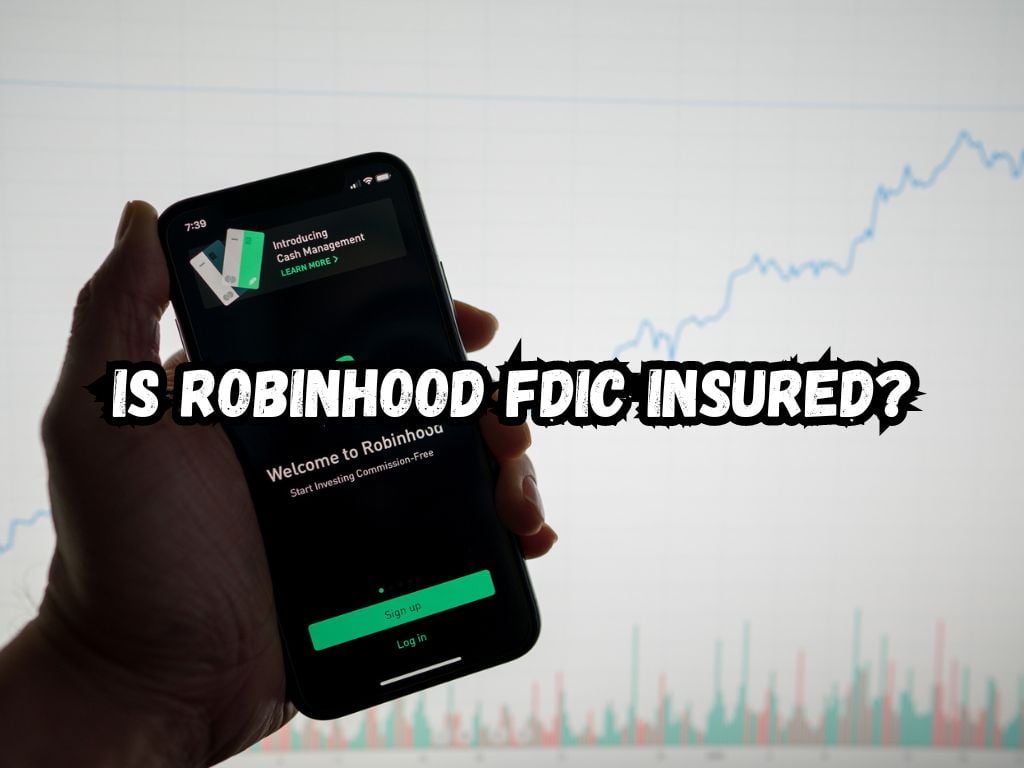Investing in the stock market has become easier than ever with the rise of commission-free trading platforms like Robinhood. However, with any financial platform, it’s essential to understand the safety and protection measures in place.
One critical aspect to consider is whether Robinhood is FDIC insured. In this article, we will explore the FDIC insurance coverage for Robinhood accounts, including coverage limits, exclusions, and comparisons with other brokerages.
Is Robinhood FDIC Insured?
When it comes to the cash in your Robinhood spending account, you’ll be glad to know that it is protected by FDIC insurance. The Federal Deposit Insurance Corporation (FDIC) is an independent agency of the United States government that provides deposit insurance to depositors in US banks.
The FDIC covers up to $250,000 per depositor, per FDIC-insured bank. This means that if Robinhood were to experience financial difficulties or if the bank holding your cash were to fail, your funds up to $250,000 would be protected.
The FDIC insurance on Robinhood spending accounts is provided through Robinhood’s partner banks. Robinhood’s partner banks include JPMorgan Chase, Wells Fargo, and Bank of America, among others. When you deposit cash into your Robinhood account, it gets transferred to one of the partner banks for safekeeping.
The FDIC insurance coverage is applicable to each partner bank separately, which means that if you have deposits in multiple partner banks, your funds would be protected up to $250,000 for each bank.

SIPC Protection for Securities on Robinhood
While FDIC insurance covers cash in your Robinhood account, it is essential to understand that securities, such as stocks and bonds, are not covered by the FDIC.
However, Robinhood provides protection for these securities through the Securities Investor Protection Corporation (SIPC). The SIPC is a non-profit corporation established by Congress to protect investors’ securities held by broker-dealers in case of bankruptcy or failure.
Similar to FDIC insurance, SIPC protection provides up to $500,000 of coverage per account, which includes a $250,000 limit for cash claims.
This means that if Robinhood were to fail and your securities were not recoverable, the SIPC would reimburse you up to the coverage limit. It is important to note that this protection applies to the overall value of your account, not individual securities.
The SIPC protection covers most types of securities, including stocks, bonds, and mutual funds. However, it does not cover certain types of investments such as commodities, options contracts, or foreign currencies.
Additionally, the SIPC protection may not cover losses that result from market volatility or poor investment decisions, as it is not intended to be a guarantee against investment losses.
Limitations and Exclusions
While FDIC and SIPC protection provide significant protection for your investments on Robinhood, it is crucial to understand the limitations and exclusions.
One important exclusion to note is that FDIC and SIPC protection do not apply to cryptocurrency investments. Cryptocurrencies like Bitcoin and Ethereum are not considered cash or securities and therefore are not covered by FDIC or SIPC insurance.
To mitigate this, Robinhood carries crime insurance to cover a portion of cryptocurrency investments. This means that in the event of theft or fraud, Robinhood may have insurance coverage to compensate for the loss. However, it’s essential to read the fine print and understand the terms and limitations of this insurance coverage.
It’s also important to note that FDIC and SIPC insurance coverage may not extend to all types of accounts or investments on Robinhood. For example, Robinhood does not offer traditional retirement accounts such as IRAs or 401(k)s, which would typically be covered by FDIC or SIPC protection.
Additionally, Robinhood offers margin accounts, which involve borrowing money to invest, and the SIPC protection may not cover losses resulting from margin trading.
Robinhood Deposit Sweep Program
To optimize the interest earned on your cash balances, Robinhood operates the Robinhood Deposit Sweep Program. This program automatically sweeps uninvested cash into program banks where it is eligible for FDIC insurance. However, it is important to note that the sweep program might limit the extent of FDIC insurance coverage.
The program banks have capacity restrictions, and if your cash exceeds their capacity, it may not be eligible for FDIC insurance beyond the coverage limit. It’s recommended to review the list of program banks and their capacity to ensure your cash is appropriately allocated and protected.

Comparisons with Other Brokerages
Understanding the FDIC insurance coverage offered by Robinhood becomes even more meaningful when compared to other popular brokerages. While Robinhood offers FDIC insurance coverage up to $250,000, many traditional brokerage firms provide similar coverage levels.
For example, Charles Schwab, Fidelity, and TD Ameritrade also offer FDIC insurance coverage up to $250,000 on cash deposits. However, it’s essential to consider other factors such as fees, trading features, and user experience when choosing the right platform for your needs.
Tips for Maximizing FDIC Insurance Coverage
To ensure you make the most of the FDIC insurance coverage on your Robinhood account, consider the following pro tips:
- Understand the coverage limits: Familiarize yourself with the coverage limits for both FDIC and SIPC insurance. Knowing the limits will help you make educated decisions about the allocation of your investments.
- Diversify across program banks: If your cash balance exceeds the capacity of a single program bank, consider spreading your cash across multiple banks to maximize FDIC insurance coverage.
- Regularly review insurance coverage: Keep track of any updates or changes to Robinhood’s insurance coverage. Review the list of program banks and any adjustments to the coverage limits to ensure continued protection of your investments.
- Consider alternative protection measures: While FDIC and SIPC protection provide substantial protection for your investments, consider additional protection measures such as cybersecurity measures, fraud alerts, or insurance policies for specific investments.
Conclusion
When it comes to the safety and protection of your investments on Robinhood, it’s essential to understand the insurance coverage in place. While FDIC insurance provides protection for cash in Robinhood spending accounts up to $250,000, the SIPC protects securities up to $500,000.
However, it’s important to note that cryptocurrency investments are not covered by FDIC or SIPC insurance. By familiarizing yourself with these insurance protections and implementing the provided tips, you can make informed decisions about your investments and ensure your funds are adequately protected.


 Tags:
Tags:










